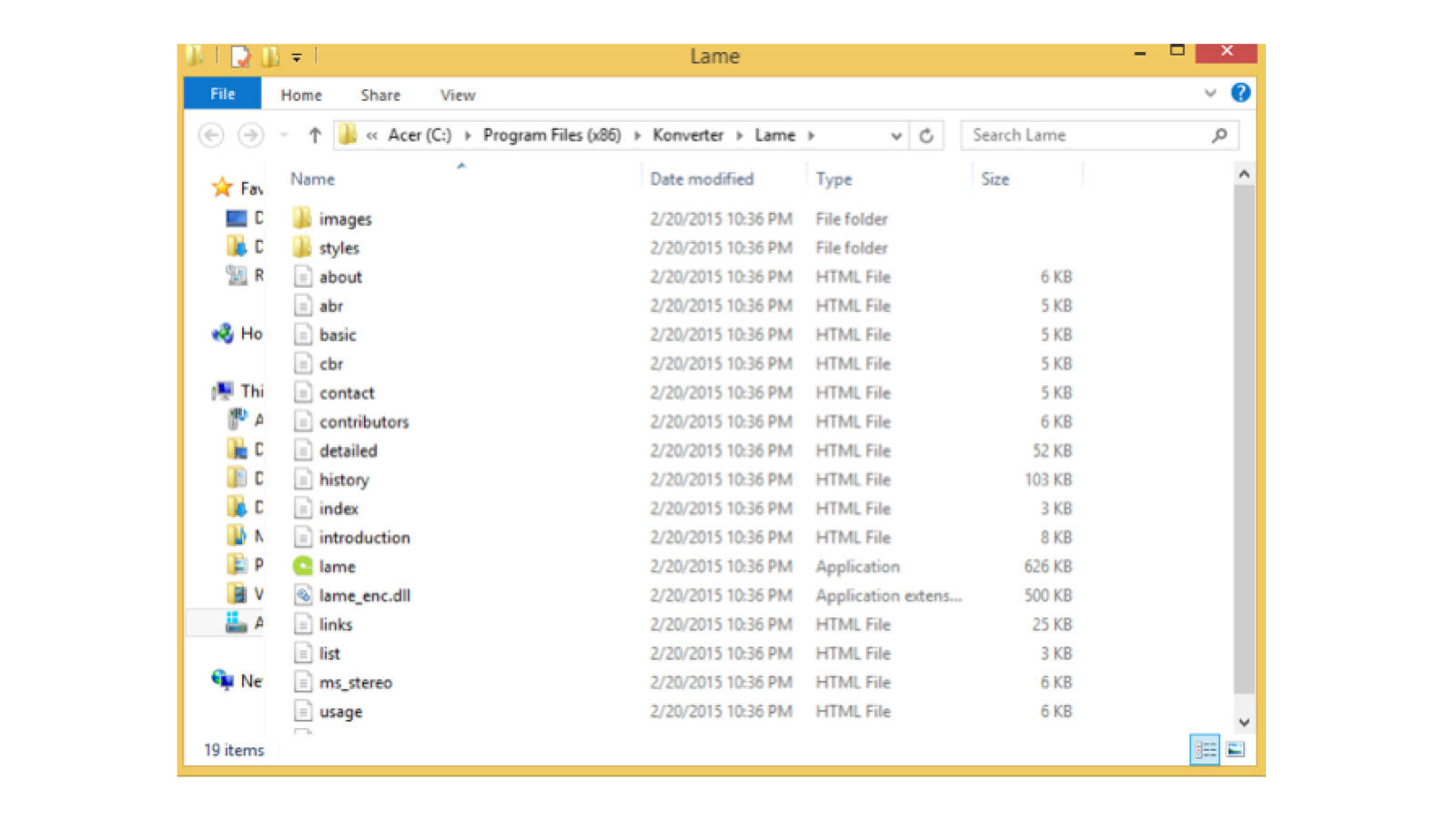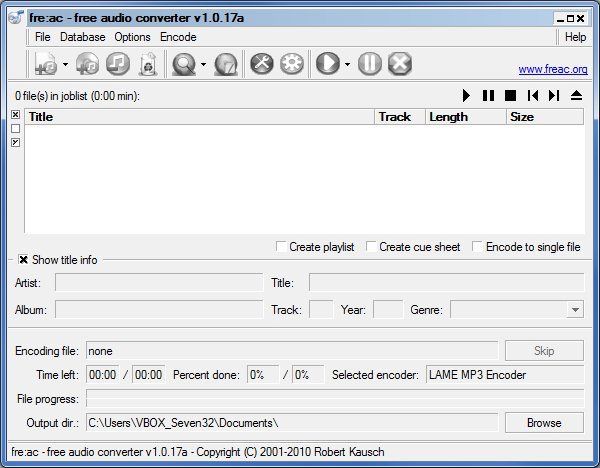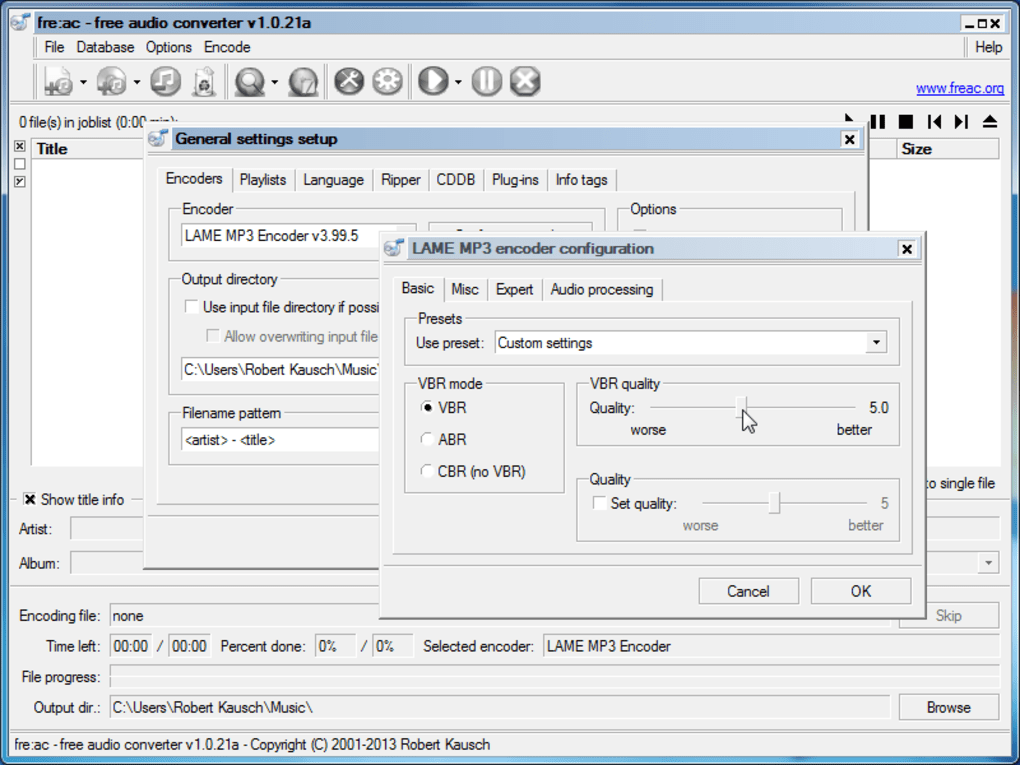


The abcde tarball contains comprehensive documentation including a detailed FAQ and a sample nf file. If you prefer a more 'interactive' experience another place for abcde discussion is in the Libera.Chat channel #abcde where you can speak directly to the abcde developers or just chat about audio encoding in general with other abcde users. Old bugs filed there will not be transcribed to the new bugzilla by the abcde developers - if you have an issue there that you'd like to see continued focus on, feel free to file a new bug about it. We used to use Google Code's issue tracker, but we have now moved away from it. The right place to report bugs in abcde is now in our own bugzilla. The best place for discussion is the abcde-users mailing list.
Installing encoder freac code#
We've switched to using git for our code repository see a=summary for code access.
Installing encoder freac download#
The canonical download location is now (here!).Ībcde version 2.9.3 is the most recent download and was released on February 5th 2019. Older releases of abcde were hosted using Google Code, but Google removed the ability to push new tarball downloads there a while ago so we decided to move away.

In a way, abcde can take a compressed backup of your CD collection. Delete the intermediate WAV file (or save it for later use)Īlternatively, abcde can also grab a CD and turn it into a single FLAC file with an embedded cuesheet which can be user later on as a source for other formats, and will be treated as if it was the original CD.Calculate replaygain values for the individual file (or the album as a single unit).Compress to Ogg/Vorbis, MP3, FLAC, Ogg/Speex, MPP/MP+(Musepack), M4A and/or Opus format(s), all in one CD read.Normalize the volume of the individual file (or the album as a single unit).Grab an audio track (or all the audio CD tracks) from your CD.Do a CDDB or Musicbrainz query over the Internet to look up your CD or use a locally stored CDDB entry, or read CD-TEXT from your CD as a fallback for track information.It will take an entire CD and convert it into a compressed audio format - Ogg/Vorbis, MPEG Audio Layer III, Free Lossless Audio Codec (FLAC), Ogg/Speex, MPP/MP+(Musepack), M4A (AAC) or Opus format(s). Ordinarily, the process of grabbing the data off a CD and encoding it, then tagging or commenting it, is very involved. Grab an entire CD and compress it to Ogg/Vorbis, MP3, FLAC, AAC, Ogg/Speex and/or MPP/MP+(Musepack) format.


 0 kommentar(er)
0 kommentar(er)
